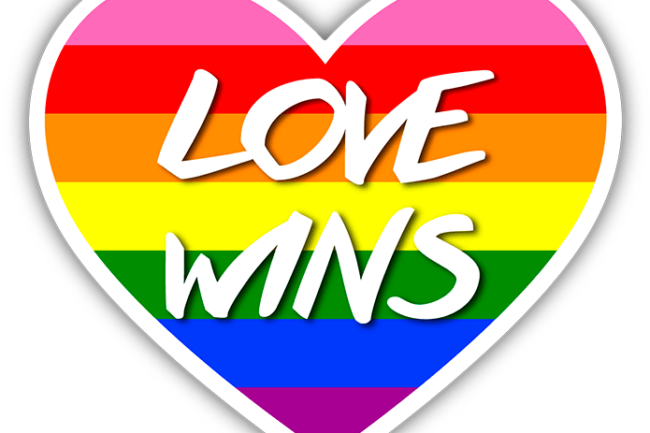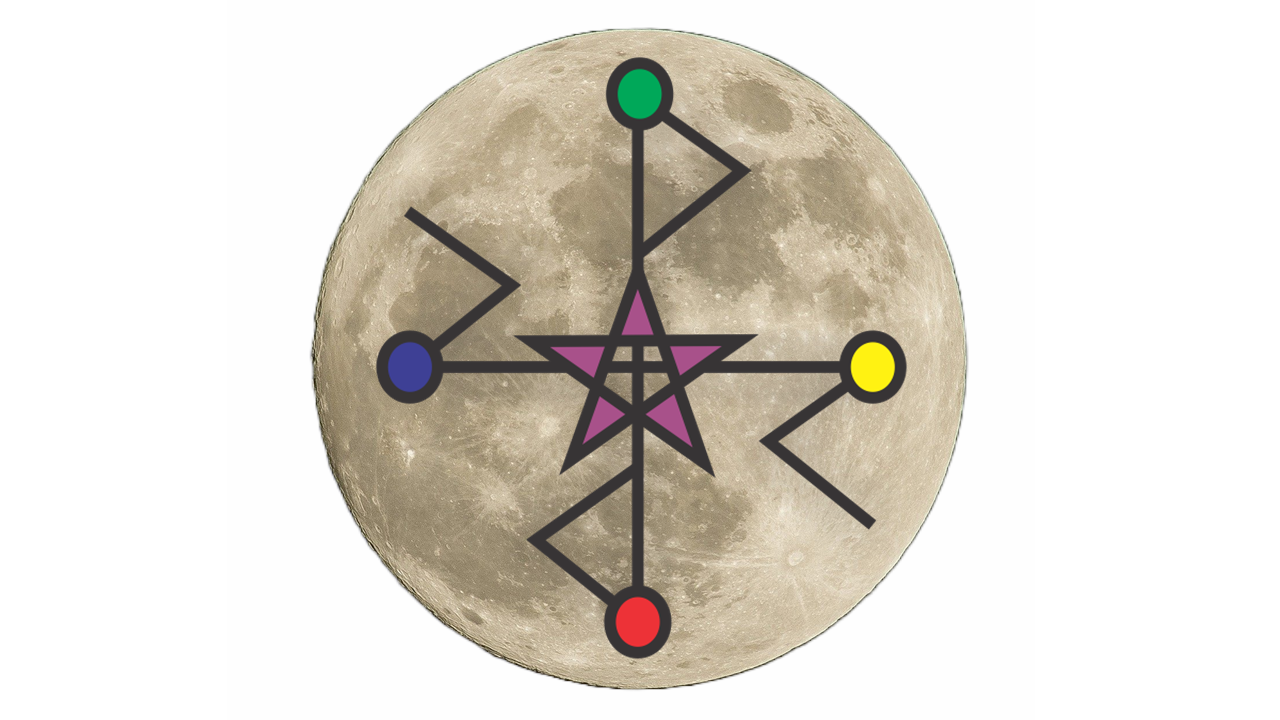SUPPORTING PAGANS WHO ARE ALSO LGBTQ?
Let’s talk about it…
Many pagans either identify as part of the LGBTQ community or love and support someone who is. The support for either lifestyle is interchangeable. Why is this? According to my daughter, this is because “Being part of the LGBTQ community is being part of a very open and welcoming family. Pagans are also a very open community and they accept everyone for who they are. They are judgment-free and support those who are in the LGBTQ+ community. Pagans are allies of the LGBTQ family.” Is this true for all pagans? Do all LGBTQ members feel this way, too? Seeing as June is LGBTQ Pride month, it is something worth delving into.
My daughter identifies as LGBTQ
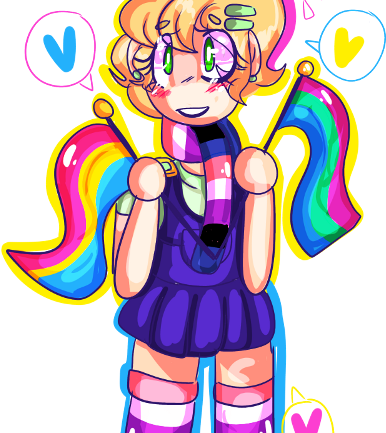 My daughter, L, identifies as pansexual. She never really came out to her father and me. She just brought her boyfriend, who is female-to-male transgender, home and declared that they were dating. There it was. As a person, I really didn’t feel either negatively or positively about this, and I don’t think her dad really did, either. We always told our girls that we didn’t care who they brought home – color, religion, gender, etc. – as long as that person treated them right and made them happy. L was very happy.
My daughter, L, identifies as pansexual. She never really came out to her father and me. She just brought her boyfriend, who is female-to-male transgender, home and declared that they were dating. There it was. As a person, I really didn’t feel either negatively or positively about this, and I don’t think her dad really did, either. We always told our girls that we didn’t care who they brought home – color, religion, gender, etc. – as long as that person treated them right and made them happy. L was very happy.
Her boyfriend became my son
Shortly thereafter her boyfriend, B, moved in with us, and the young couple married in 2018. When B moved in with us it was because of turmoil in his own home. 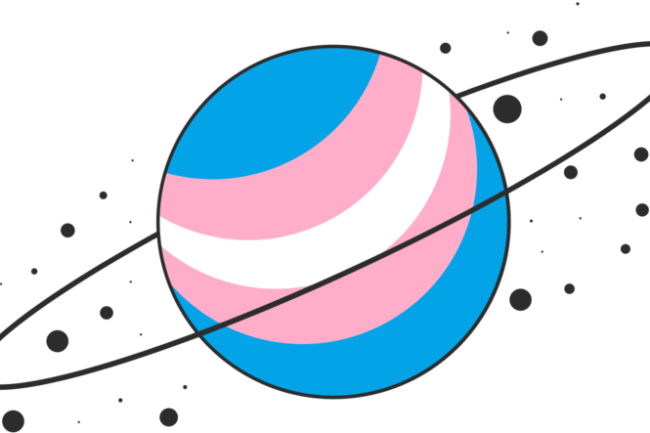 When this happened, I told B that he was my son from that point on and nothing could change that. Is this because I am a witch? I’m not sure, but I’d like to think that the openness of the pagan community helped me to be more open with the LGBTQ community.
When this happened, I told B that he was my son from that point on and nothing could change that. Is this because I am a witch? I’m not sure, but I’d like to think that the openness of the pagan community helped me to be more open with the LGBTQ community.
How Dad felt about it
Their dad accepted B as well, however, he/him pronouns are hard for Dad to remember. To this day Dad sometimes lets a “she” or “her” slip out and B just laughs and says, “That’s okay, Dad.” My husband admits to not really understanding the concept of non-traditional genders very well, but in his older years, he is much more open-minded. Is this difficulty is contributed to the faith instilled in him by the church he attended in childhood?
Does being a witch make me have more of an open mind?
My husband grew up Mormon, and they are not as open-minded regarding the LGBTQ community, but for me accepting my daughter’s sexuality and chosen partner is easier because I am a witch. I know that all living beings have value and should be treated as such, no matter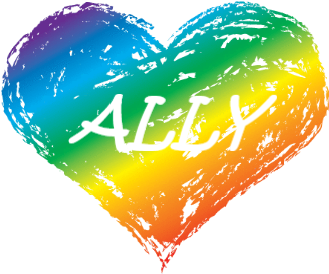 how they have come to be. Being homosexual or transgender is natural, therefore no witch can deny them. Part of being a witch is to honor nature and all she offers us. However, there are covens and groups of pagans who do not subscribe to this theory.
how they have come to be. Being homosexual or transgender is natural, therefore no witch can deny them. Part of being a witch is to honor nature and all she offers us. However, there are covens and groups of pagans who do not subscribe to this theory.
Feminist Witches
Back in the 70s, when Z. Budapest started her Dianic groups, she only allowed “genetic” women into her covens. There are female pagans that consider transgender females to be invalid. These women are known as TERFs, or trans-exclusionary radical feminists. They believe that if a woman doesn’t menstruate then she is not a woman. Covens still exist that will not let anyone who is not a biological female become a member.
Traditional Witches
Some covens require rituals to be performed skyclad, or naked, which make it uncomfortable for people who are not of biological genders. Some also require that certain parts of the rituals be performed by witches of traditional gender roles, leaving out witches who identify as LGBTQ.
Indigenous Genders
This also rules out individuals of other cultures that are considered people of a third gender, such as the Two Spirits of the Native Americans of North America. These are people who show interest in the traditional roles of the opposite gender. They are considered to be the most gifted of their race because they carry the spirits of two beings, but they do not typically fall within the male-female stereotypical roles.
There are also the Muxes of the indigenous people of Mexico. These people do not fall into traditional gender roles and are typically males who identify as women. They are quite skilled in homemaking talents and tend to care for their elderly parents. There has been a festival held in their honor in Oaxaca every year since the 1970s. They, also, would be left out of traditional gender roles in ritual.
In the broom closet
Unfortunately, not all pagans believe that non-traditional sexualities and genders are acceptable. Sometimes this is due to how a person is raised or their political beliefs. Once you make the conscious choice to lead your life as a witch, it is hard to let go of previous “programming” and embrace all that the Universe has to offer. It is also difficult if you are living your life in the broom closet. You may inwardly empathize with the plight of the LGBTQ community, but because of circumstances, you are unable to voice your beliefs aloud.
As my daughter said, the pagan community can be open-minded and judgment-free. Many witches understand if there is a reason you are pagan and do not support people who are LGBTQ but understand if maybe you’d like to talk about it. Try it, you’d be surprised how many witches empathize with you and want to discuss why you feel the way you do.
Moving into the 21st Century
Luckily, the types of covens and groups who deny LGBTQ memberships are now few and far between and seem to be dwindling more every year. Many pagans take to the opinion that members of the LGBTQ community are our brothers and sisters. A friend of mine, R, said that he supports his LGBTQ friends just as he knows that they support him in the face of discrimination and hate. As he puts it, the gods accept us for who we are, so therefore, we should accept others in the same way.
We share the Earth, let’s do it peacefully
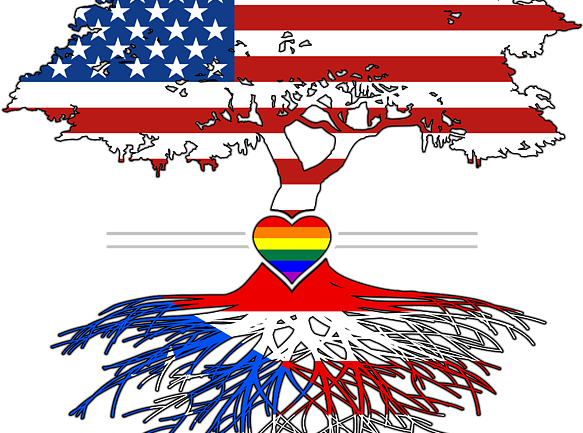 As pagans, we understand that we are not the judges and juries of the Universe. We are merely the beings who have the privilege of sharing this world with others. For LGBTQ Pride 2021 and for Midsummer, let us remember that we travel on our paths as equals, supporting one another until we are able to move to the next plane. Let us try to reserve judgment and accept each other’s faults and strengths.
As pagans, we understand that we are not the judges and juries of the Universe. We are merely the beings who have the privilege of sharing this world with others. For LGBTQ Pride 2021 and for Midsummer, let us remember that we travel on our paths as equals, supporting one another until we are able to move to the next plane. Let us try to reserve judgment and accept each other’s faults and strengths.
Take care of each other and many, many blessings to you and yours.